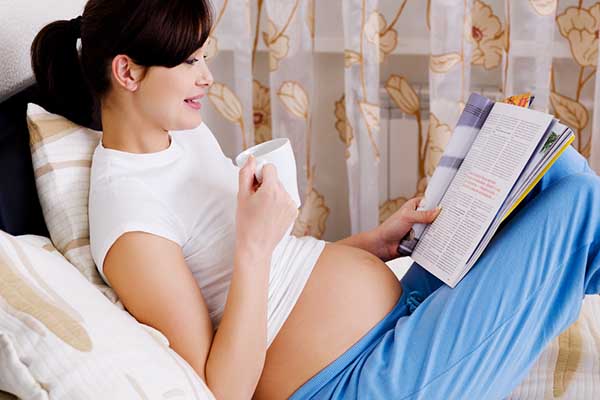
Not all herbal teas are safe when you’re pregnant, but many are A-OK! So, what’s the skinny on tea during pregnancy?
When I was in my first trimester, I had just settled in with a nice cup of chamomile tea for my new favorite pastime: reading all about pregnancy! After ten or 15 minutes of idle googling, I ran across a forum posts (I can’t remember where it was now) where a group of women were saying that some herbal teas weren’t safe during pregnancy!
What!
I knew that you’re supposed to limit caffeine intake to 200-300mg per day (about 1 cup of coffee), but what could possibly be wrong with herbal tea?? I spit my chamomile back into the mug and spent the evening worried that I’d harmed my baby by drinking tea during my pregnancy.
It’s been about four months since that scary moment. Since then, I’ve talked to my doctor and done a lot of research on what teas are and aren’t safe during pregnancy. It turns out that in general, drinking tea during pregnancy is pretty safe. There are thousands of teas out there, so if your favorite tea isn’t on this list, drop a comment and I’ll see what I can find out for you! Just like with exercise and pregnancy, you can also talk to your doctor. Not all conventional doctors will know about different teas and how they can affect pregnancy, but it’s worth asking!
Safe Teas for Pregnancy
Herbal tea in moderation is fine in pregnancy, but don’t overdo it! Stick to one mug a day to be on the safe side, maybe two mugs, if you space them out throughout the day.
- raspberry leaf – Not only is this tea safe, but it has all kinds of micronutrients that are great for your growing baby!
- black or green tea – These teas (on their own) are not herbal, so they are safe to consume. Just watch that caffeine intake! Some caffeine is OK, but you don’t want more than 300mg per day. Some research suggests you limit to 200mg per day. Black and green teas are very low in caffeine compared to coffee, so making the switch can be an easy way to stay below these limits.
- ginger – Don’t overdo it on the ginger tea, but the occasional mug is fine, and it can even help with that first trimester nausea!
- peppermint leaf – Peppermint can also help with nausea.
- Rooibos – Full of antioxidants, this tea is great during pregnancy
- lemon balm – This can help with some of that pregnany anxiety.
- fennel – Fennel tea is safe only in small amounts, so if you’re going to drink fennel stick to a tea blend where it’s not the main event. Small doses of fennel tea during pregnancy can help with swelling.
- citrus teas – Teas made from citrus peels are safe during pregnancy. One exception is lemongrass, which is not safe. Lemongrass is not made from a citrus peel, but since the name makes it sound like it could be, I thought it was worth mentioning here.
Teas to Avoid During Pregnancy
These teas can stimulate the uterus, causing contractions or otherwise possibly harm your growing baby. Again, this isn’t a comprehensive list. If there’s a tea that’s not on this list, ask away, and I’ll see what I can dig up for you!
- chamomile – Turns out that spitting out that chamomile was a good idea. While small amounts might be OK, chamomile is a strong anti-inflammatory, and you should avoid chamomile during pregnancy for the same reasons your doctor tells you not to take aspirin.
- hibiscus – Hibiscus tea may be linked to miscarriage. This is not well-tested, but better to err on the side of caution!
- ma huang – This is a powerful stimulant and not good for your baby.
- stinging nettle leaf – The trick with stinging nettle tea is that the root in moderation is OK, but the leaf is not safe during pregnancy. If your pregnancy tea just says “stinging nettle” in the ingredients, you might want to check that it’s the root and not the leaves before you drink up
- black and blue cohosh – These are actually sometimes used to induce labor, so avoid, avoid, avoid!
- don quai – Another strong stimulant to avoid.
- lemongrass – Considered unsafe during pregnancy.
- ephedra – A powerful stimulant. Seeing a trend here?
- ginseng – Another stimulant that’s not so great for you or your baby during pregnancy
- licorice root – Experts say to avoid licorice tea during pregnancy.
- penny royal – This herb is actually sometimes used to intentionally induce miscarriage. Avoid!!
- St. John’s wort – This is a powerful medicinal and you should not take it during pregnancy.
- yarrow – Another tea that’s linked to miscarriages.
You might have noticed a few food items on this no-go list, like lemongrass and licorice. Does that mean you should skip foods that contain these ingredients? Not necessarily! Teas are much more concentrated than the amount of lemongrass in that cup of tom kha soup or licorice in candy. Talk to your doctor, but eating these in food form is different from drinking them as teas.
Image Credit: Tea & Pregnancy photo via Shutterstock
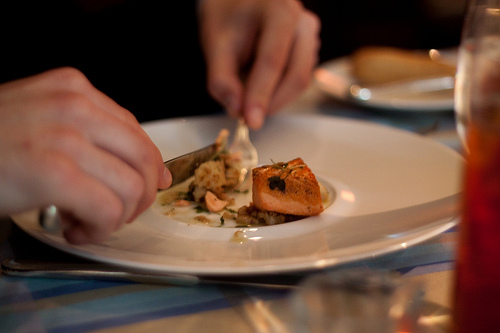
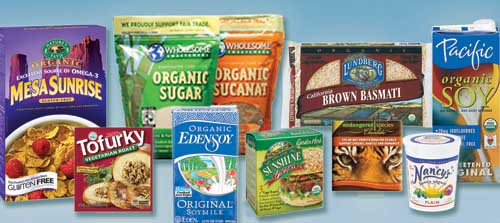


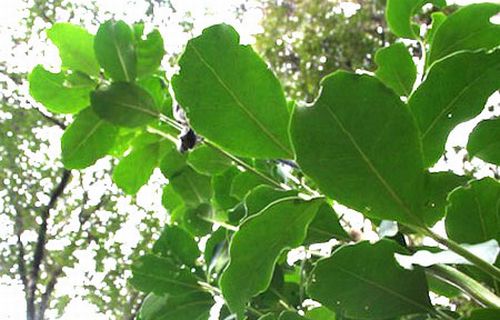
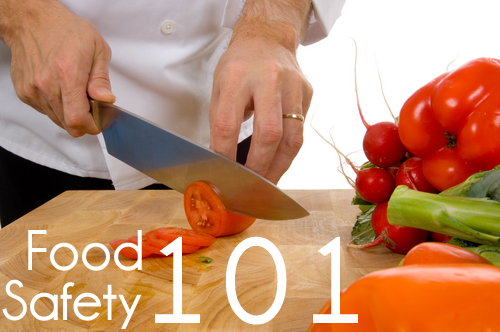
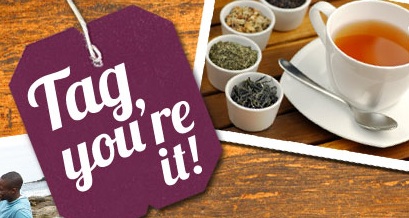
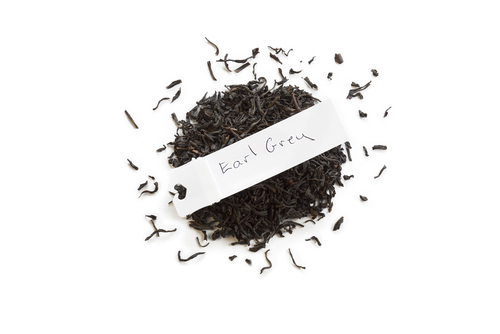
I was told by my midwife that rapper leaf tea should not be used until the end of pregnancy. It can be found to be beneficial at that one but the effect could possibly lead to complications later on. Is this true?
I would definitely follow any recommendations from your midwife, since everyone’s body is different. If you’re asking about raspberry leaf tea, I will say that I drank it throughout my pregnancy but stuck to one mug a day max. My son was three weeks early (6 pounds and healthy), but my sister and I also came out early, so I can’t say for sure that the tea was the culprit there.
What’s wrong with nettle during pregnancy?
Is typhoo fruit infusion safe in 2nd trimester ?
Thanks
I just purchased a Celestial Organics Ginger and Turmeric Tea hoping for some nausea relief. The only three ingredients are ginger, cinnamon, and turmeric. I read that turmeric pills are unsafe during pregnancy, but that the spice is alright. Would the tea be safe?
Thank you for sharing such a valuable information. Chamomile green tea online ,this tea is perfect for soothing sips through the day or at bedtime. Known to calm your colds and cramps, this healing tea will keep you cosy on a rainy day in bed.